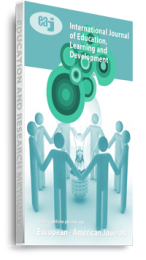This study determined whether there were significant relationships between the selected psychosocial occupational stressors of career advancement, workloads, interpersonal work relationship, gender difference in family/work interface, and control/decision latitude and job satisfaction among student counsellors practicing in National Open University of Nigeria. This study adopted descriptive survey of Ex-post facto design. The research population included all the sixty-two student counsellors serving in NOUN as at July, 2013. Purposive sampling technique was used. Out of the sixty two Psychosocial Occupational Stress Scale (POSS) distributed, only forty- four were properly filled and used for analysis. The reliability of the instrument was established using test-retest correlation via Pearson Product Moment Correlation (PPMC) which yielded average of r=.77. The alpha level of significant was set at 0 .005.The analyses via SPSS indicated that there were positive low relationships between Job satisfaction and career advancement (r= 0.011; p =0.942), interpersonal relationship (r=. 0.175; p =0.255) and workloads (r=0.102; p =0.511).While there were inverse low relationships between job satisfaction and gender difference in family/work interface (r=.0.-.229; p=0.135 and, control and decision latitude (r=0.-217; p=0.157). All the null hypotheses were accepted, inferring that, there were no significant correlations between psychosocial occupational stressors and job satisfaction of student counsellors in NOUN. These results were therefore attributed to student counsellors’ expert knowledge and skills in the management of stress. Based on the findings, incisive recommendations were also made
Keywords: Counsellors, Job Satisfaction, National Open University, Psychosocial, occupational Stress

